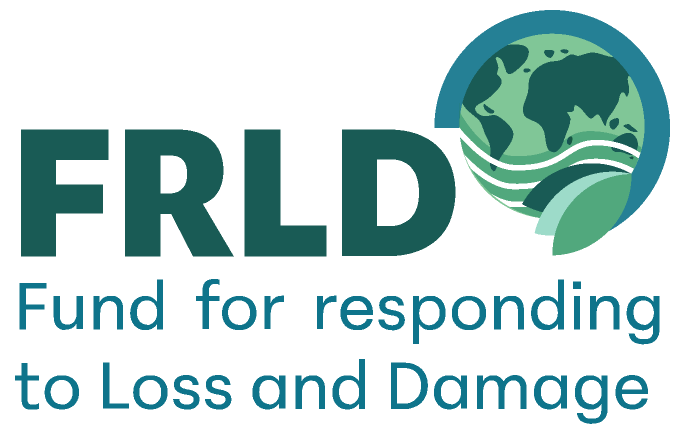The Board of the Fund for Responding to Loss and Damage (FRLD) has concluded its 7th meeting in Manila, Philippines, marking a historic milestone with the approval of the Barbados Implementation Modalities (BIM) — the Fund’s first call for funding requests.
This critical decision officially transitions the Fund from its setup phase to full-scale delivery, positioning it to provide vital financial support to vulnerable developing nations grappling with the worsening impacts of the climate crisis.
The meeting comes at a pivotal moment, as the world approaches COP30—dubbed the “Implementation COP”—with escalating climate vulnerabilities demanding swift, on-the-ground interventions.
“This is one of the historic Board meetings of our term… We have now approved the BIM, along with a set of policies that will allow the BIM to be operational and will formally launch the call for proposals at COP30. We must now demonstrate that the Fund is taking action for developing nations.”
— Richard Sherman, Co-Chair of the Fund.
The BIM was first introduced during the 5th Board meeting in Barbados and has now been formally adopted. It will serve as the Fund’s first call for funding requests, allocating $250 million to support initial interventions. Grants ranging from $5 million to $20 million per project will be made available to developing countries.
The call for funding requests is scheduled to open for six months starting December 1, offering nations a structured pathway to secure critical climate response funding.
“The launch of the BIM is a testament to our commitment to start providing support to vulnerable developing nations,” said Ibrahima Cheikh Diong, FRLD Executive Director. “We will continue to refine this funding mechanism, shaping how the FRLD will deliver support to communities grappling with the irreversible impacts of climate change in the future.”
As part of the BIM rollout, the Board approved a project cycle to guide applicants through the funding process. It also endorsed eligibility criteria based on country-led, bottom-up approaches, empowering nations to drive their own responses and tailor interventions to local contexts.
Access modalities have been clarified to ensure funding flows effectively to target beneficiaries. Countries may pursue direct budget support or apply through entities accredited to the Adaptation Fund, GEF, or GCF. National focal points will play a key role in coordinating funding priorities and ground-level actions.
While pledges amounting to $768 million from 28 countries since COP28 mark an encouraging start, the Board acknowledged that this figure is far below the scale of funding required to address escalating loss and damage needs.
At the Manila meeting, the Board resolved to launch the Fund’s first replenishment process in 2027 and begin work on a Resource Mobilisation Strategy to secure sustained and additional resources.
“Our work is just beginning. The initial pledges are a good start, but we must now build upon this momentum,” Mr Diong stressed. “Our task is to now develop and refine a strategy based on the Board’s feedback and develop a concrete action plan to secure the substantial and additional funding required to fulfil our mandate.”
By 2026, the Secretariat plans to develop a long-term model for the Fund to guide future interventions and strengthen operational capacity.
With the Manila meeting concluded, the FRLD Secretariat is moving quickly to implement the decisions made. The focus now shifts to disbursement and delivery, ensuring that vulnerable communities in developing countries receive timely and effective support.
Co-chair Jean Christophe Donnellier commended the Board’s progress over the past two years, noting their collective dedication to advancing the Fund’s mission.
“It’s been a privilege to serve the Fund over the last three years, and I recognise the tremendous effort that has brought us this far. I am convinced that the FRLD can make a meaningful difference for developing nations, and I wish the Fund every success,” he stated.
As the BIM is rolled out, the FRLD stands as a critical pillar of global climate action—complementing mitigation and adaptation—and a powerful symbol of global solidarity with nations on the frontlines of climate change.
About the Fund for responding to Loss and Damage (FRLD):
The Fund for responding to Loss and Damage (FRLD), an operating entity under the financial mechanism of the United Nations Framework Convention on Climate Change (UNFCCC), addresses the growing needs of vulnerable communities in developing countries facing the irreversible impacts of climate change. By financing recovery initiatives from climate-related losses and damage, the Fund empowers communities to rebuild and adapt. It strives for country-led locally driven solutions, ensuring interventions are aligned to country needs, priorities and contexts.
For more information, go to www.frld.org
Click the link Puretvonline.com | WhatsApp Channel to join the WhatsApp channel
GOT A STORY?
Contact/WhatsApp: +233243201960 or manuelnkansah33@gmail.com

